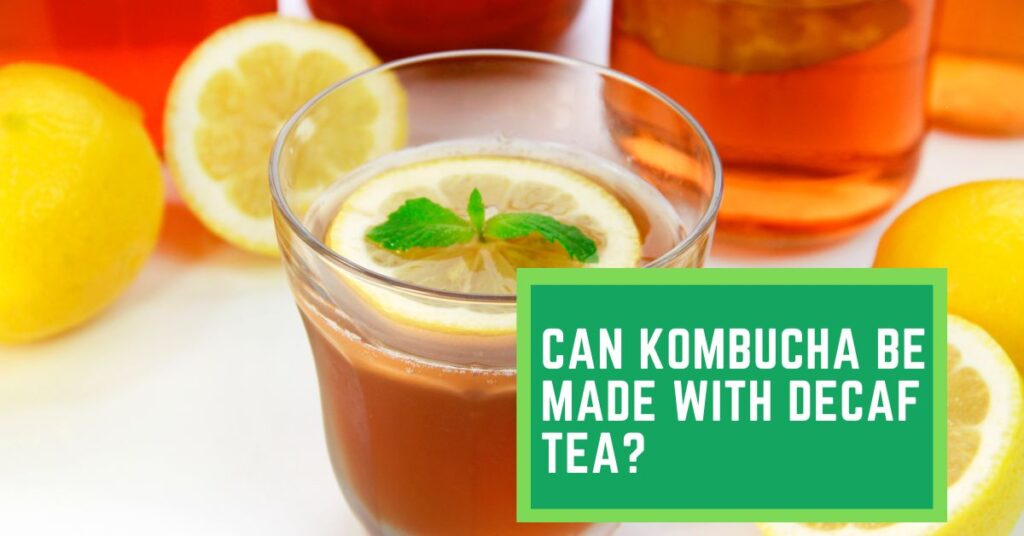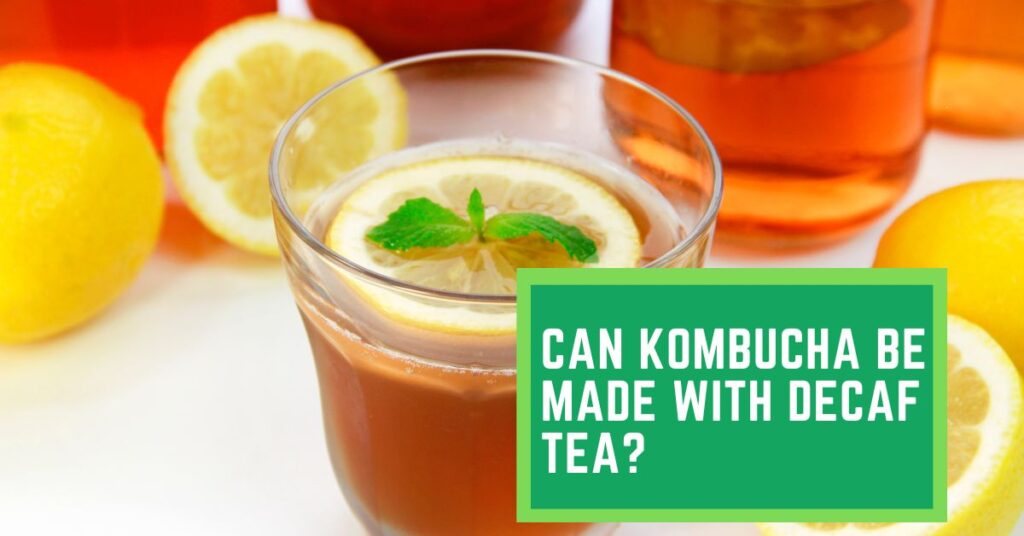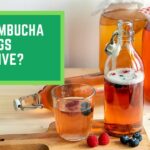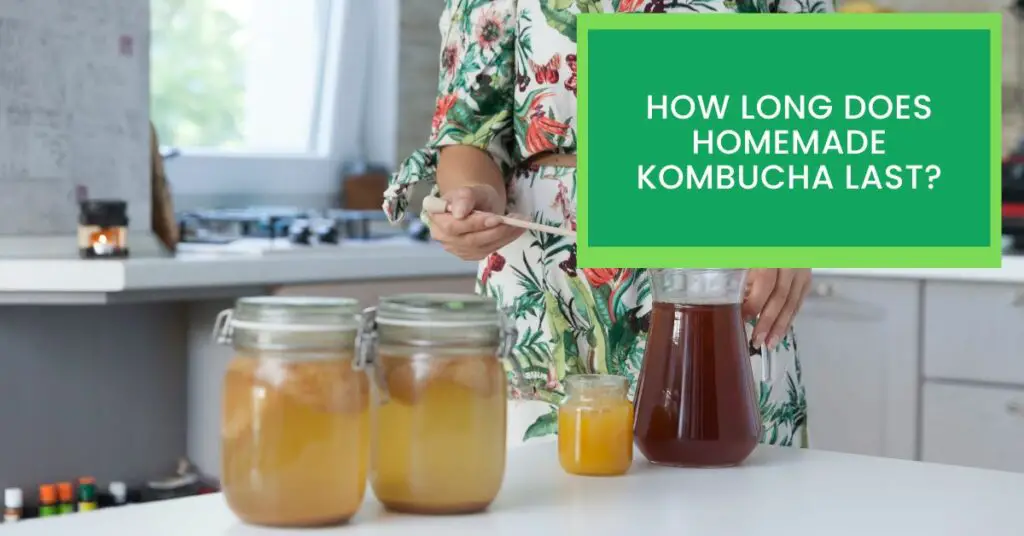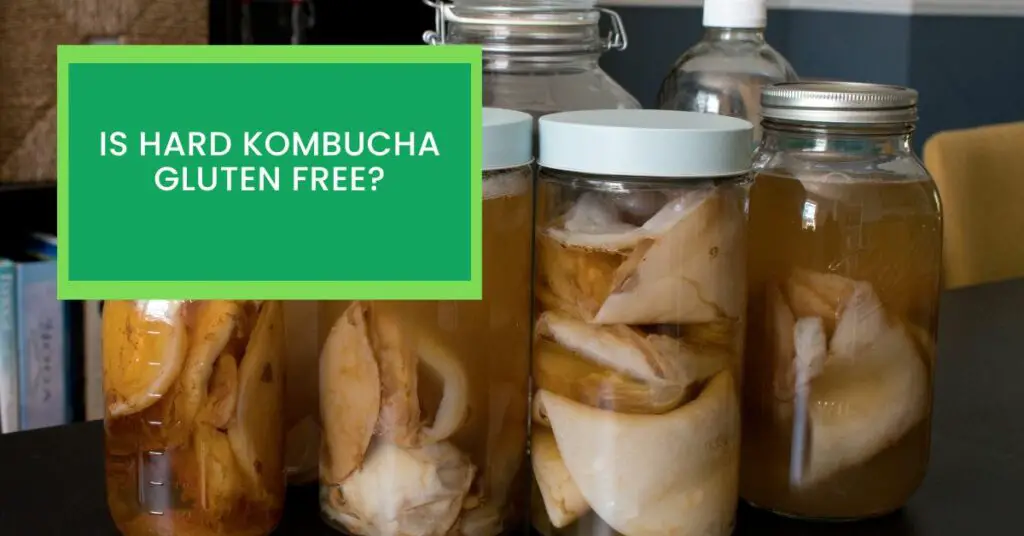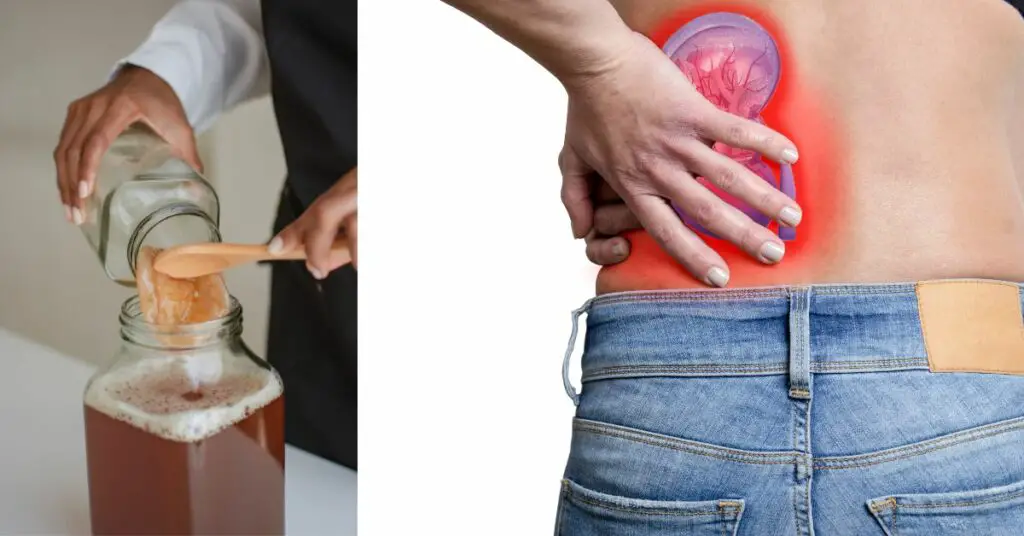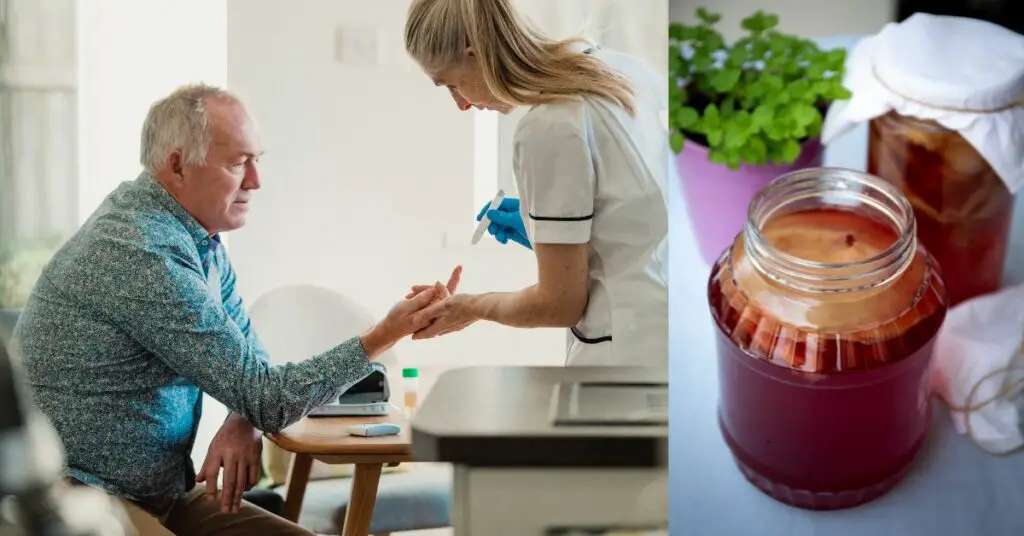Kombucha is a delicious and refreshing probiotic drink that is easy to make at home.
You can use any type of tea to make kombucha, including black tea, green tea, white tea, and herbal tea.
What if you make kombucha with Decaf Tea?
It’s possible to create decaf kombucha! All you need is decaf tea bags and a brewing kit, which you can get from most supermarkets, and start brewing your decaf kombucha.
In this article, we will look at everything you need to know about making kombucha with decaf tea, including the benefits and things to watch out for.
The Decaf Kombucha
Decaf kombucha is a type of kombucha that has had caffeine removed.
While regular kombucha is made with tea leaves that contain caffeine, decaf kombucha is made with herbal teas or decaffeinated tea leaves.
Decaf kombucha still contains the same probiotics and other health benefits as regular kombucha, but it is a good option for people who are sensitive to caffeine or want to avoid it.
If you’re looking for kombucha that doesn’t have any caffeine, decaf kombucha is a great choice. It has all of the probiotics and other health benefits of regular kombucha but without caffeine. So, if you’re sensitive to caffeine or just want to avoid it, decaf kombucha is a great option.
The Difference Between Decaf Kombucha And Regular Kombucha
Kombucha is a fermented tea that has been enjoyed for centuries. Kombucha has gained popularity in recent years for its purported health benefits.
Regular kombucha is made with black or green tea and sugar. The sugar is fermented by bacteria and yeast, which produces a slightly effervescent, lightly alcoholic beverage. Decaf kombucha is made in the same way but with decaffeinated tea.
There are a few key differences between decaf kombucha and regular kombucha.
First, decaf kombucha contains less caffeine than regular kombucha. This is due to the fact that decaffeinated tea is used in its production.
Second, decaf kombucha has a slightly different flavour than regular kombucha. This is due to the fact that the fermentation process may be affected by the lack of caffeine.
Finally, decaf kombucha may have fewer health benefits than regular kombucha. This is because the fermentation process may not be as effective in decaffeinated tea.
Overall, decaf kombucha is a slightly different drink than regular kombucha. It contains less caffeine and may have a different flavour. However, it is still a delicious and refreshing beverage.
The Benefits of Drinking Decaf Kombucha
It’s no secret that kombucha is becoming more and more popular. This fermented tea drink has a long list of benefits, ranging from improving gut health to boosting energy levels. But what about decaf kombucha? Is it just as good for you?
Turns out, the answer is a resounding yes! Decaf kombucha offers all the same benefits as regular kombucha, without caffeine. This makes it a great choice for those who are sensitive to caffeine or simply want to avoid it.
So, what are the benefits of drinking decaf kombucha? Let’s take a look:
1. It’s Good for Your Gut
One of the main benefits of kombucha is its gut-friendly properties. This is thanks to the fermentation process, which creates probiotics. Probiotics are live bacteria and yeasts that are beneficial for gut health.
They help to maintain a healthy balance of bacteria in your gut, which can promote digestion and prevent gastrointestinal issues.
2. It Boosts Energy Levels
Despite being decaffeinated, kombucha can still give you a natural energy boost. This is thanks to the vitamin B12 it contains. Vitamin B12 helps convert food into energy, so drinking kombucha can give you a much-needed pick-me-up when you’re tired.
3. It’s Rich in Antioxidants
Kombucha is also rich in antioxidants, which are compounds that protect your cells from damage. These antioxidants can help to reduce the risk of chronic diseases like heart disease and cancer. They can also help improve cognitive function and slow the aging process.
4. It May Help to Detoxify the Body
Kombucha is often touted as a detox beverage. This is because it contains glucuronic acid, which is known for its detoxifying properties. Glucuronic acid binds to toxins in the body and helps to remove them through urination. This can help to improve liver function and overall health.
5. It’s Low in Sugar
One of the main reasons people turn to kombucha is its low sugar content. This is because the fermentation process breaks down a lot of the sugar, so kombucha is much lower in sugar than other sweetened drinks like soda and juice.
This makes it a great choice for those who are watching their sugar intake.
Decaf kombucha is a great choice for those looking to enjoy all the benefits of kombucha without caffeine. It’s gut-friendly, rich in antioxidants, and low in sugar. So, next time you’re reaching for a kombucha, make sure to grab the decaf version! Your body will thank you.
Is There Caffeine in Homemade Kombucha?
Kombucha made with black or green tea will contain caffeine, but the amount will vary depending on the type of tea used and how long the kombucha is fermented. Kombucha made with herbal tea, or decaffeinated tea will not contain caffeine.
The fermentation process does not break down all of the caffeine in the tea, so kombucha will always have some caffeine. However, the amount of caffeine in kombucha is typically much lower than in regular tea or coffee.
If you are sensitive to caffeine or are looking to avoid it altogether, kombucha made with herbal or decaffeinated tea is a good option. Otherwise, you can experiment with different types of tea and fermentation times to find a kombucha that has the perfect balance of flavour and caffeine for you.
Make Your Own Decaf Kombucha!
Kombucha is a delicious, probiotic-rich drink that’s easy to make at home. And what’s even better is that you can customize it to your own taste!
If you love kombucha but don’t like the caffeine, try making your own decaf kombucha. It’s just as delicious and refreshing, but without the caffeine kick.
Here’s how to do it:
Ingredients:
1 cup sugar
4 tea bags (decaf black or green tea)
1 SCOBY (symbiotic colony of bacteria and yeast)
1 cup starter kombucha (from a previous batch or store-bought)
Instructions:
1. In a large pot, dissolve the sugar in 2 cups of boiling water.
2. Add the tea bags and let steep for 5 minutes.
3. Remove the tea bags and let the liquid cool to room temperature.
4. Pour the liquid into a jar or fermenting vessel, and add the SCOBY and starter kombucha.
5. Cover the jar with a clean cloth or coffee filter and secure it with a rubber band.
6. Let the kombucha ferment for 7-30 days, taste-testing along the way to see if it’s to your liking.
7. Once it’s fermented to your liking, remove the SCOBY and starter kombucha (set aside for your next batch) and bottle the kombucha.
Decaf kombucha is a great way to enjoy all the benefits of kombucha without caffeine. Give it a try today!
Tips For Making Great Tasting Decaf Kombucha
Although kombucha is naturally caffeine-infused, it is possible to make a great-tasting decaf version. Here are a few tips to help you get the best results:
1. Start with quality tea. Use a high-quality black or green tea for your brew. This will ensure that your kombucha has a good flavour without the caffeine.
2. Use less tea. When brewing decaf kombucha, use about half the amount of tea leaves that you would use for a regular batch. This will help to reduce the caffeine content.
3. Steep for a shorter time. Steep your tea for a shorter time when making decaf kombucha. This will also help to reduce the caffeine content.
4. Add flavourings. To make your decaf kombucha more flavorful, consider adding fruit juice, herbs, or spices to your brew.
5. Let it carbonate longer. Decaf kombucha usually takes a bit longer to carbonate than regular kombucha. Be patient and let it carbonate for at least a week before enjoying it.
By following these tips, you can make a great-tasting decaf kombucha that everyone can enjoy. Cheers!
Frequently Asked Questions Related to Decaf Kombucha
1. How do you get the caffeine out of kombucha?
You can’t really remove the caffeine from kombucha since it’s produced during the fermentation process.
However, there are a couple of things you can do to minimize the amount of caffeine in your kombucha. One is to let the kombucha ferment for a shorter period of time, which will result in less caffeine.
You can also add more water to your kombucha when you’re diluting it, which will also help to reduce the caffeine content.
2. Does a SCOBY need caffeine?
A SCOBY doesn’t need caffeine. In fact, it’s best to avoid caffeinated drinks when culturing a kombucha SCOBY, as caffeine can interfere with the fermentation process.
Kombucha is a fermented tea that is made from black or green tea. During the fermentation process, the caffeine in the tea is converted into other compounds, including glucuronic acid and methylxanthines.
These compounds are not harmful and are actually beneficial for gut health.
3. Which kombucha has the least caffeine?
There are many kombucha brands out there that boast different health benefits.
However, if you’re looking for kombucha with low caffeine levels, you might want to try Arrowhead Mills Organic Kombucha. This kombucha is made with green tea, which is naturally lower in caffeine than other teas.
Additionally, the fermentation process breaks down some of the caffeine, so you can enjoy a cup without worrying about getting too wired.
